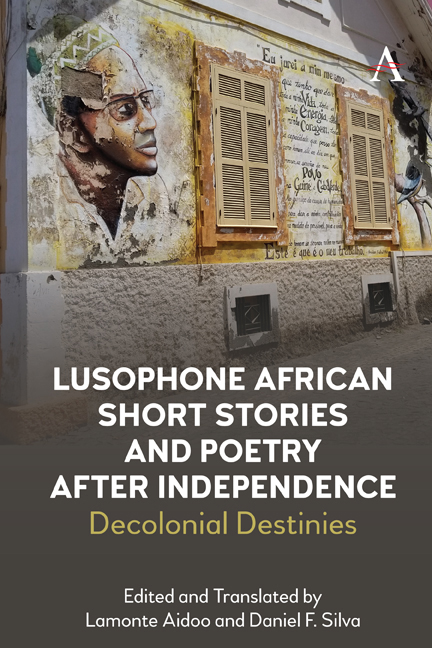Chapter 19 - Tânia Tomé
Published online by Cambridge University Press: 23 February 2022
Summary
Introduction
Born in 1981, Tânia Tomé represents part of a current generation of Mozambican writers born shortly after national independence and whose childhood coincided with the Mozambican civil war. After growing up in Maputo, she attended the Catholic University of Portugal where she earned a bachelor's degree in economics and a master's degree in business administration.
In 2004, she co-organized an anthology of poetry from other young poets of Portuguese-speaking countries, titled Um Abraço Quente da Lusofonia (Lusophony's Warm Embrace). During this time, Tomé also pursued musical endeavors, releasing an album titled Encontro (Encounter). Upon returning to Mozambique, she coproduced a visual arts performance celebrating and bringing to the stage the poetry of José Craveirinha. Along these lines, she has played a central role in promoting and expanding the impact of Mozambican poetry by bringing it into artistic contact with other genres of cultural production. Of particular note is the performance series she inaugurated in 2008, named “Showesia” (“Showetry”), in which musicians and poets coproduce and perform new creative works.
In the late 2000s, her own poetry began to garner national and international attention in both Lusophone and multilingual circles, with her work appearing in the World Poetry Almanac 2009, featuring 190 poets from 100 nations. A year later, she released her first collection of poetry and short fiction in one volume, Agarra-me o Sol por Trás (The Sun Grabs Me from Behind, 2010), from which the selected works below are taken. Prior this collection, and at the age 20, she coauthored an academic trade book, Dinâmica Estocástica e Irreversibilidade (Stochastic Dynamics and Irreversibility, 2001) through the University of São Paulo Press on stochastic models of mathematically tracking an array of phenomena in sciences, economics, and engineering. A longer second edition was published in 2014, as well as an English translation in 2015.
Tomé's trajectory beyond literature differs markedly from that of other notable Mozambican writers, especially in her engagement with the public and her positioning in various commercial ventures, and entrenching herself in various modi operandi of contemporary global capital. Throughout the 2010s, Tomé became a public figure of sorts, opening her own business consulting firm in Mozambique, incentivizing foreign investment in Mozambique under the guise of development.
- Type
- Chapter
- Information
- Lusophone African Short Stories and Poetry after IndependenceDecolonial Destinies, pp. 203 - 212Publisher: Anthem PressPrint publication year: 2021

